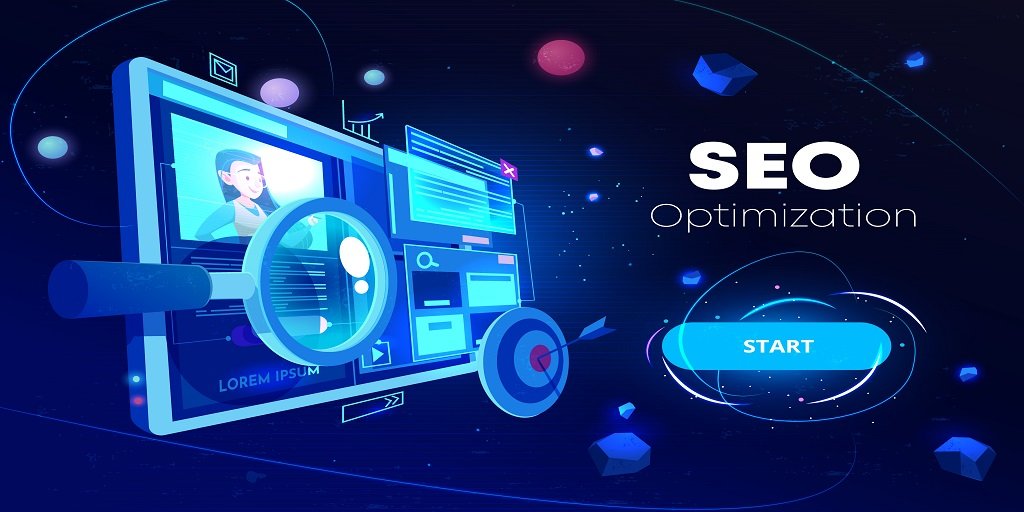In the rapidly evolving landscape of the healthcare industry, technology has become a vital catalyst for transformation. Among the numerous innovations, custom healthcare app development stands out as a powerful driver for improving not only patient care but also the operational efficiency of healthcare providers. From streamlining appointment scheduling to reducing administrative burdens and facilitating real-time communication, customized digital solutions are redefining how hospitals, clinics, and medical professionals operate.
This article explores how custom healthcare app development is enhancing efficiency across healthcare operations, why off-the-shelf solutions fall short, and how tailored mobile and web apps can meet the unique needs of medical organizations.
Understanding Custom Healthcare App Development
Custom healthcare app development refers to the creation of tailored mobile or web-based applications designed specifically to meet the requirements of healthcare providers, professionals, or patients. Unlike generic, off-the-shelf healthcare software, these apps are built from the ground up with the end-user’s workflows, compliance regulations, and organizational goals in mind.
Examples of custom healthcare apps include:
-
Patient management and EMR/EHR systems
-
Appointment scheduling apps
-
Telemedicine and video consultation platforms
-
Medical billing and coding apps
-
Remote patient monitoring tools
-
Hospital workflow automation solutions
-
Custom apps for lab result notifications or e-prescriptions
Custom apps are more than digital tools—they are integrated solutions that align with the strategic goals of healthcare organizations.
The Operational Challenges in Healthcare
Before diving into how these apps improve efficiency, it’s important to understand the major operational pain points in the healthcare industry:
-
Manual and fragmented workflows: Many hospitals still rely on paper forms or disparate systems that don’t communicate with each other, leading to inefficiencies and delays.
-
Administrative burden: Staff spends an inordinate amount of time managing appointments, insurance claims, billing, and documentation.
-
Patient engagement gaps: Without digital tools, communication between patients and providers becomes limited, affecting satisfaction and adherence to care plans.
-
Compliance and data security: Ensuring compliance with HIPAA and local data protection laws can be challenging without properly configured digital solutions.
-
Resource allocation: Lack of real-time data makes it hard to allocate beds, equipment, or staff efficiently.
App development for healthcare, when customized, addresses each of these pain points systematically.
1. Automating Administrative Workflows
Administrative tasks are one of the most time-consuming aspects of healthcare delivery. Custom apps can automate:
-
Patient registration and check-ins
-
Insurance verification
-
Medical record management
-
Billing and invoicing
For example, a custom app can allow patients to pre-fill their information and upload documents before appointments, significantly reducing wait times and front-desk workload. Integration with electronic health records (EHRs) also ensures that staff do not have to enter the same data in multiple systems.
This automation improves accuracy, reduces human error, and frees staff to focus on higher-value tasks.
2. Enhancing Appointment Scheduling and Resource Allocation
Efficient scheduling systems are critical for maximizing resource utilization. Custom healthcare apps can integrate intelligent scheduling algorithms that:
-
Automatically detect calendar conflicts
-
Optimize appointments based on doctor availability and specialty
-
Allocate examination rooms or diagnostic labs effectively
-
Send real-time reminders to patients and providers
By reducing no-shows, overbooking, and idle time, such systems can boost productivity across departments. Moreover, when paired with patient history data, custom apps can suggest the right amount of time required for each appointment type.
3. Improving Communication and Collaboration
One of the key advantages of custom healthcare app development is the ability to create real-time communication channels between:
-
Doctors and nurses
-
Hospitals and laboratories
-
Providers and patients
Instead of relying on email, faxes, or phone calls, healthcare staff can use secure messaging features embedded in custom apps. This not only speeds up decision-making but also ensures better documentation of conversations.
For instance, a custom app could enable a doctor to receive a real-time notification when lab results are ready, and then send a message to the patient with the next steps—all within the app environment.
4. Enabling Telemedicine and Remote Care
Telemedicine is no longer a luxury; it’s a necessity. Custom apps can be designed with video consultation features, patient portals, prescription management, and payment gateways.
Such apps allow healthcare providers to:
-
Expand their reach to remote areas
-
Reduce clinic crowding
-
Lower overhead costs
-
Provide continuity of care for chronic patients
By integrating with wearable devices and IoT sensors, these custom solutions can also support remote patient monitoring, triggering alerts for abnormal vitals and enabling timely interventions.
This digital shift significantly improves operational efficiency while maintaining high standards of care.
5. Streamlining Billing and Insurance Claims
Billing errors and insurance rejections are major operational setbacks. A tailored app can:
-
Validate insurance in real-time
-
Pre-authorize treatments
-
Generate compliant invoices
-
Integrate with third-party payment and insurance systems
When built with healthcare regulations in mind (like ICD-10 or HIPAA), these apps can reduce claim denials and revenue cycle delays. Automated billing also shortens payment turnaround times and improves cash flow.
6. Supporting Compliance and Security
Healthcare data is sensitive and must comply with various legal standards. A custom healthcare app allows organizations to embed data protection at every level:
-
End-to-end encryption
-
Role-based access controls
-
Multi-factor authentication
-
Audit trails for data access
Because custom apps are built to match the organization’s infrastructure and policies, they provide a higher level of assurance than generic platforms.
They also facilitate easier compliance reporting, enabling faster response to audits or data breach incidents.
7. Empowering Data-Driven Decision Making
By aggregating data from various touchpoints—appointments, treatments, billing, feedback—custom apps provide centralized dashboards for administrators and physicians.
Analytics tools integrated into the app can:
-
Track patient satisfaction scores
-
Monitor staff productivity
-
Predict patient admission trends
-
Identify bottlenecks in care delivery
With real-time insights, hospital administrators can make faster and more informed decisions, ensuring that resources are used optimally and service quality improves.
8. Personalizing the Patient Experience
Patient-centric care is at the core of modern healthcare. App development for healthcare that is personalized enables patients to:
-
View their health records
-
Receive medication reminders
-
Book and track appointments
-
Chat with providers
-
Access wellness content
Customization based on the demographics, medical history, and preferences of the patient leads to better adherence to care plans and improved health outcomes. Happy and engaged patients are also less likely to switch providers, improving patient retention rates.
Case Study: A Hospital’s Transformation with Custom App Development
Let’s take a fictional example to illustrate the transformation.
CityMed Hospital, a mid-sized urban hospital, was struggling with long wait times, inefficient patient records, and high administrative costs. They partnered with a software development firm to create a custom healthcare app that included:
-
Patient self-check-in kiosks
-
A provider dashboard integrated with the hospital’s EHR
-
A mobile app for patients to book appointments and access reports
-
Automated billing and insurance submission modules
The results:
-
Administrative workload dropped by 40%
-
Average wait time was reduced by 30%
-
Patient satisfaction improved from 68% to 88%
-
Billing errors were cut in half
This transformation highlights how custom healthcare apps are not just add-ons but strategic assets.
Off-the-Shelf vs Custom Apps: Why Personalization Wins
Off-the-shelf apps are quick to deploy but often lack the flexibility, integration capabilities, and user experience required for complex healthcare operations. They may also come with features that are irrelevant or miss critical functionalities.
In contrast, custom healthcare app development offers:
-
Feature prioritization based on actual needs
-
Seamless integration with existing IT systems
-
Scalability for future growth
-
UI/UX designed for specific user personas (patients, doctors, nurses)
While the initial investment may be higher, the long-term return in terms of efficiency, data control, and patient loyalty makes it worthwhile.
Key Technologies Powering Custom Healthcare Apps
To achieve the best operational results, custom healthcare apps often incorporate:
-
Artificial Intelligence (AI) – for predictive analytics, chatbots, and diagnostics
-
Machine Learning (ML) – for identifying patterns in patient data
-
Internet of Medical Things (IoMT) – for real-time health monitoring
-
Cloud computing – for scalability and data access across locations
-
Blockchain – for secure and tamper-proof medical records
-
FHIR/HL7 Integration – for standardized healthcare data exchange
These technologies ensure that custom solutions are not just efficient but also intelligent and future-ready.
Future Outlook: Scaling Efficiency Beyond 2025
As value-based care becomes the norm and patient expectations evolve, custom apps will play an even more central role in healthcare delivery. We can expect:
-
Increased automation through AI
-
Expanded use of AR/VR in patient care and training
-
Tighter interoperability between systems and providers
-
Greater emphasis on personalized health journeys
Healthcare institutions that invest in custom healthcare app development today are positioning themselves to lead tomorrow’s digital health revolution.
Conclusion
In a field as dynamic and critical as healthcare, operational efficiency is non-negotiable. Through custom healthcare app development, providers can automate tedious workflows, improve care coordination, enhance patient engagement, and drive data-driven decisions. These tailored solutions are not just improving processes—they’re redefining the standards of quality, safety, and responsiveness in healthcare.
For hospitals, clinics, and digital health startups, the move toward custom solutions is no longer a competitive advantage—it’s a necessity for survival and growth in the digital era.














Leave a Reply